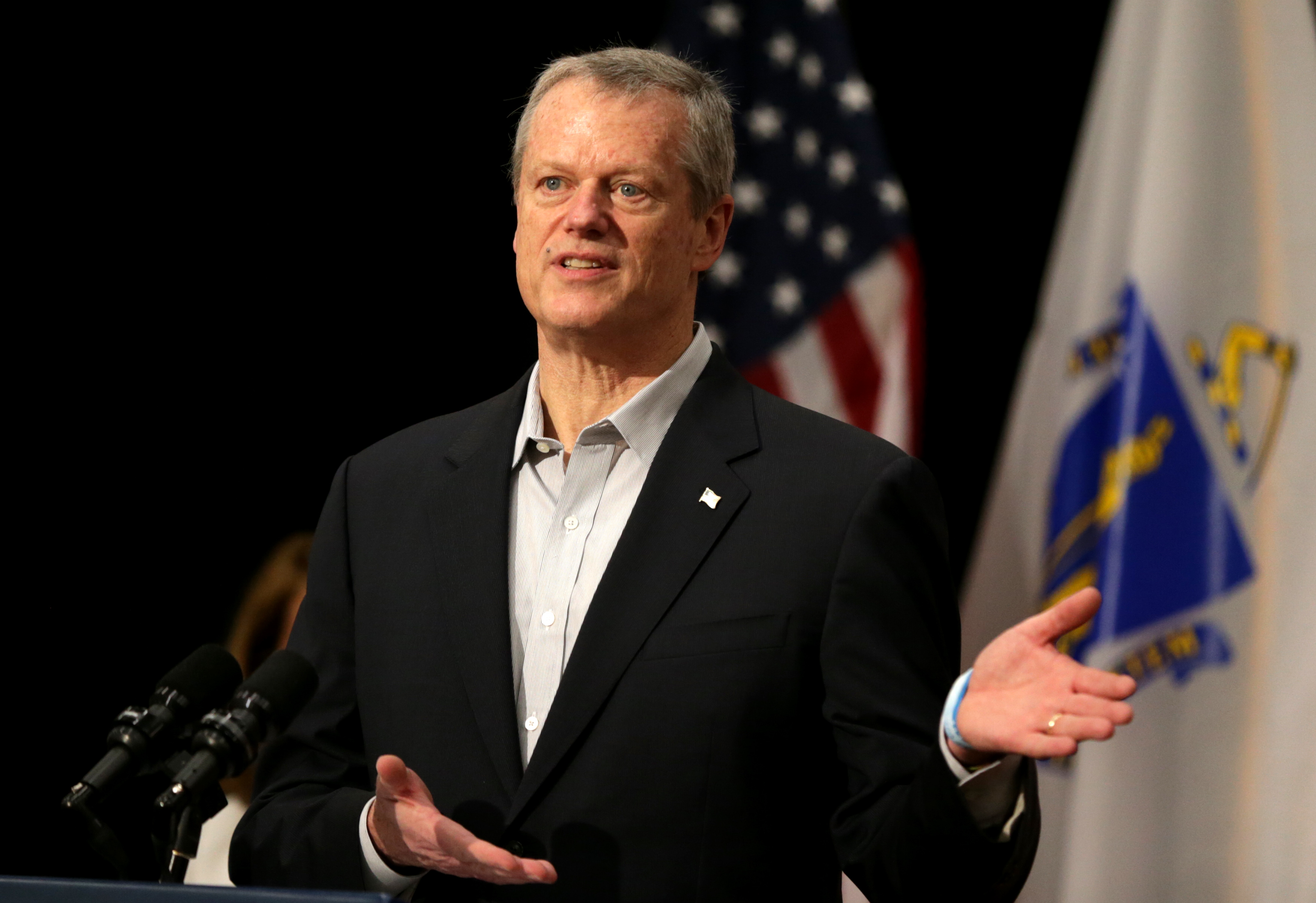No coronavirus deaths were reported to Massachusetts health officials in 24 hours, the state's public health agency said Tuesday. It's the first time that's happened in months.
At the same time, the state's official coronavirus death toll dropped by just over 40 people as part of a data clean-up of duplicate reports, the officials said.
The state Department of Public Health reported no new coronavirus deaths on Tuesday in its daily COVID-19 report and cited "ongoing data cleaning which identifies and removes duplicate reports" for the number of deaths decreasing in the day's report.
A representative for the department explained that the lack of new deaths reported Tuesday was not connected to the data cleanup.
Massachusetts' death toll was lowered to 8,054, down 41 from where it stood in Monday's report. The department identified 114 new cases, bringing the total number of cases in the state to 108,882.
The state had reported deaths every day for months; at times during the coronavirus surge in mid-April more than 200 deaths were reported in a single day.
The first death in Massachusetts attributed to the virus was announced on March 20, and the following day is the last one when the Department of Public Health didn't announce any more deaths, according to state data.
The number of deaths reported each day doesn't correspond directly to the number of people who died on that day, since there's often some lag in hospitals and other facilities reporting the deaths to health officials. The first two coronavirus-related deaths in Massachusetts had actually occurred on March 18, according to the department's data.
But the daily tallies reported by the department have for weeks been consistently lower than what the state was experiencing at the height of its coronavirus crisis, after the state restricted business, moved schools to remote education and clamped down on public gatherings and events.
How Coronavirus Has Grown in Each State — in 1 Chart
This graph shows how the number of coronavirus cases have grown in Massachusetts, in the context of the other U.S. states, dating to the early days of the pandemic. It shows how many cases have been diagnosed each day in each state since their 500th cases. Select a state from the dropdown to highlight its track.
Source: The COVID Tracking Project
Credit: Amy O’Kruk/NBC
Where once Massachusetts, New York and New Jersey were the epicenter of the coronavirus outbreak in the U.S. -- they still have three highest death tolls among all states -- all three have lowered their infection rates considerably.
They are low enough throughout the region that Massachusetts Gov. Charlie Baker was able to announce Tuesday that travelers to the state from elsewhere in New England, as well as New York and New Jersey, would be exempt from the standing 14-day quarantine starting Wednesday.
Now, the hot spots are located in the South and Southwest, in states like Florida, Texas and Arizona, and they have concerned public health officials.
On Tuesday, Dr. Anthony Fauci, one of the nation's top health officials, warned that cases could grow by 100,000 a day in the U.S. if Americans don’t start following public health recommendations.
Asked Tuesday what he took away from the flare-ups elsewhere in the country, Baker said he's inclined to continue his policy of letting the data guide decisions on reopening.
"I think the big message I take from what's happening in some other parts of the country is you need to respect the virus, you should be careful and cautious about the way you reopen and you should be willing to rely on a solid foundation of guidance and information," he said.
Baker added that people and businesses in Massachusetts have by and large been very willing to comply with the state's measures to keep the public safe.
New surges are cropping up in those states because states are reopening too fast and without the proper testing and tracing mechanisms in place, a Harvard public health expert said on the "TODAY" show Saturday.
Get top local stories in Boston delivered to you every morning. Sign up for NBC Boston's News Headlines newsletter.
"We opened up too fast. We opened up bars, we opened up nightclubs, and it's the combination of all of that that has led us to where we are today," said Dr. Ashish Jha, who leads the Harvard Global Health Institute.
The six indicators informing how fast Massachusetts can move through the four phases of reopening the state are: the COVID-19 positive test rate, the number of individuals who died from COVID-19, the number of patients with COVID-19 in hospitals, the health care system's readiness, testing capacity, contact tracing capabilities. Their statuses have held steady, with half in a positive trend and half "in progress" since June 5.



